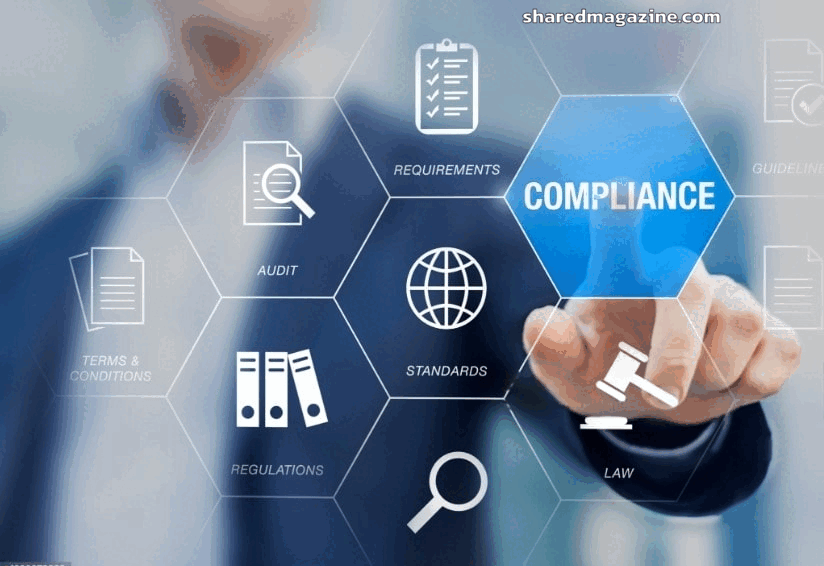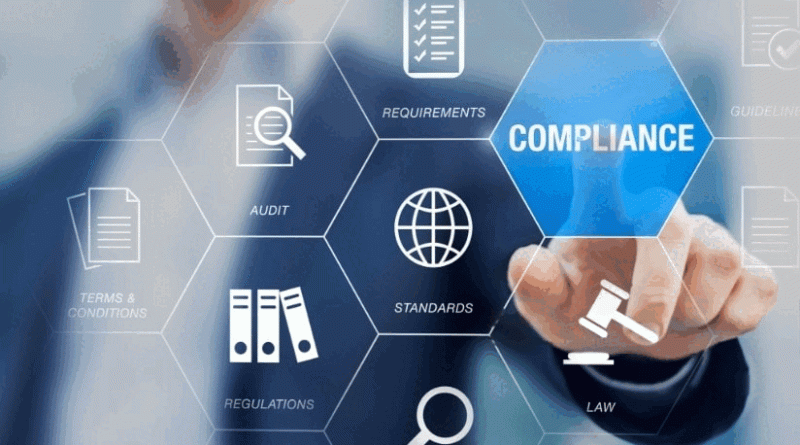Compliância in Business: Navigating the Regulatory Landscape

Introduction
In today’s dynamic business environment, Compliância plays a pivotal role in ensuring the integrity and sustainability of organizations. From adhering to regulatory standards to implementing internal policies, Compliância encompasses a broad spectrum of practices aimed at maintaining ethical conduct and mitigating risks. This article delves into the intricacies of compliance, its significance, challenges, best practices, and future trends.
Compliância
Compliância refers to the act of adhering to laws, regulations, guidelines, and internal policies relevant to a particular industry or jurisdiction. It is the cornerstone of ethical business practices, encompassing various aspects such as financial reporting, data privacy, environmental regulations, and more. Compliance ensures that organizations operate within legal boundaries while upholding ethical standards and fulfilling their responsibilities to stakeholders.
Regulatory Compliância
Regulatory Compliância involves adhering to laws and regulations set forth by governmental bodies at the local, national, or international levels. These regulations are designed to protect consumers, safeguard the environment, and ensure fair competition within the marketplace.
Industry-Specific Compliância
Certain industries, such as healthcare, finance, and pharmaceuticals, have specific Compliância requirements tailored to their unique operations. These industry-specific regulations address sector-specific risks and challenges, ensuring that organizations within these sectors operate responsibly and ethically.
Internal Compliância
Internal Compliância refers to the set of policies, procedures, and controls implemented by organizations to ensure adherence to internal standards and best practices. It involves monitoring and enforcing compliance within the organization’s structure, addressing issues such as conflicts of interest, code of conduct violations, and operational inefficiencies.
Legal Protection
By complying with relevant laws and regulations, organizations mitigate the risk of legal penalties, fines, and reputational damage resulting from non-Compliância. Compliance acts as a shield against regulatory scrutiny and potential lawsuits, safeguarding the organization’s interests and assets.
Enhancing Reputation
Maintaining a reputation for ethical conduct and regulatory Compliância enhances trust and credibility among customers, investors, and other stakeholders. A strong compliance culture signals to the market that the organization is committed to integrity, transparency, and responsible business practices.
Operational Efficiency
Effective Compliância measures streamline operations by promoting transparency, accountability, and risk management. By identifying and addressing compliance gaps, organizations optimize processes, reduce inefficiencies, and allocate resources more effectively, leading to improved overall performance.
Keeping Up with Regulations
The regulatory landscape is constantly evolving, with new laws, standards, and guidelines being introduced regularly. Staying abreast of these changes and ensuring timely Compliância can be daunting, especially for organizations operating in multiple jurisdictions or industries.
Cultural Resistance
Implementing a robust Compliância culture requires buy-in from all levels of the organization. Resistance to change, lack of awareness, and conflicting priorities can impede efforts to instill a culture of compliance, leading to compliance breaches and ethical lapses.
Data Security Concerns
With the proliferation of data-driven technologies, organizations face increasing pressure to protect sensitive information and ensure data privacy Compliância. Data breaches, cyber threats, and regulatory requirements such as GDPR pose significant challenges for organizations striving to maintain compliance in the digital age.
Conducting Regular Audits
Regular audits and assessments help organizations identify compliance gaps, assess risks, and implement corrective actions proactively. By conducting internal and external audits regularly, organizations ensure ongoing compliance and mitigate potential liabilities.
Implementing Robust Policies
Establishing clear policies, procedures, and controls is essential for ensuring compliance across all aspects of the organization’s operations. Well-defined policies provide guidance to employees, promote consistency, and mitigate the risk of non-compliance.
Employee Training
Investing in employee training and awareness programs is critical for fostering a compliance-conscious culture within the organization. By educating employees about regulatory requirements, ethical standards, and their role in compliance, organizations empower staff to make informed decisions and uphold compliance principles.
The Role of Technology in Compliance
Technology plays a pivotal role in facilitating compliance efforts, offering solutions such as:
Compliance Management Software
Compliance management software helps organizations streamline compliance processes, centralize documentation, and track regulatory requirements. These platforms automate compliance tasks, provide real-time insights, and facilitate collaboration among stakeholders, enhancing overall compliance effectiveness.
Automation of Compliance Processes
Automation technologies such as robotic process automation (RPA) and artificial intelligence (AI) streamline compliance workflows, reducing manual effort and minimizing errors. Automated compliance processes enable organizations to achieve greater efficiency, accuracy, and scalability in managing regulatory requirements.
Data Analytics for Compliance Monitoring
Data analytics tools enable organizations to analyze large volumes of data to identify compliance trends, detect anomalies, and predict potential risks. By leveraging data analytics, organizations gain valuable insights into their compliance performance, enabling proactive risk management and strategic decision-making.
Case Studies
Several organizations have successfully implemented compliance strategies tailored to their specific industry and regulatory environment. Case studies highlighting these success stories provide valuable insights and best practices for organizations seeking to enhance their compliance efforts.
Emphasis on Ethical Compliance
There is a growing emphasis on ethical compliance, with organizations focusing not only on meeting regulatory requirements but also on upholding ethical standards and corporate social responsibility. Ethical compliance involves promoting integrity, fairness, and transparency in all aspects of business conduct.
Integration of Artificial Intelligence
Artificial intelligence is increasingly being integrated into compliance processes to enhance efficiency, accuracy, and predictive capabilities. AI-powered solutions offer advanced analytics, risk modeling, and compliance monitoring capabilities, enabling organizations to stay ahead of regulatory changes and emerging risks.
Conclusion
In conclusion, compliância is a critical aspect of business operations, encompassing various regulations, standards, and internal policies aimed at ensuring ethical conduct and mitigating risks. By prioritizing compliance efforts, organizations can enhance legal protection, reputation, and operational efficiency, ultimately driving long-term success and sustainability.
FAQs
What is compliance?
Compliance refers to the act of adhering to laws, regulations, guidelines, and internal policies relevant to a particular industry or jurisdiction.
Why is compliance important?
Compliance is important for legal protection, enhancing reputation, and ensuring operational efficiency within organizations.
What are the challenges of compliance?
Challenges of compliance include keeping up with regulations, cultural resistance, and data security concerns.
How can organizations improve compliance?
Organizations can improve compliance by conducting regular audits, implementing robust policies and procedures, and investing in employee training and awareness.
What are the future trends in compliance?
Future trends in compliance include an emphasis on ethical compliance and the integration of artificial intelligence to enhance compliance processes.



